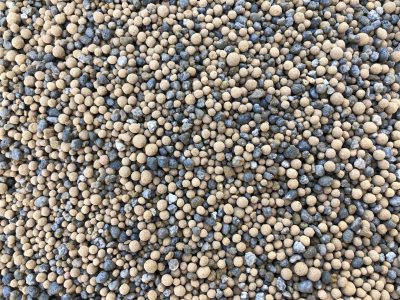$546.00/t
DDMAX 75 is a blend of 25% water soluble phosphate and 75% citric soluble phosphate. The water soluble phosphate component will give an immediate response and the citric soluble phosphate will give a more prolonged response while also helping to build soil phosphate reserves.

DDMax 75 is made up of 25% fast acting (water-soluble) phosphate and 75% slower releasing (citric soluble) phosphate. Get an instant production lift from the water soluble phosphate while getting the medium term production lift, an overall improved phosphate utilisation and biological benefits from the slow releasing Citric Soluble P. Talk to your DD Area Manager to find out which phosphate product is best suited to your farms soil characteristics, climate and production requirements.
Key Benefits of DDMax 75:
Summer, Autumn, Winter, Spring